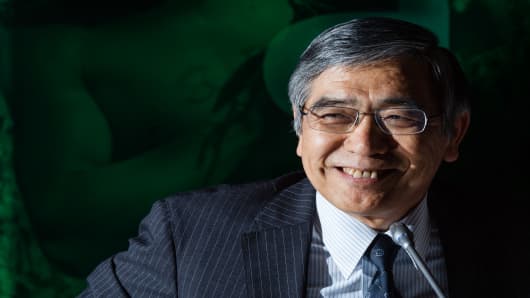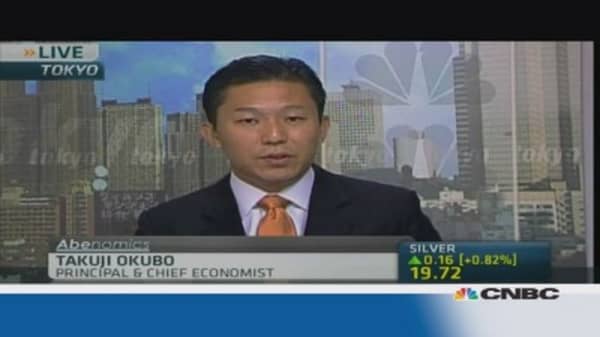Bank of Japan Governor Haruhiko Kuroda said he won't hesitate to provide further monetary stimulus if downside risks from a planned sales tax hike or overseas economies increase, according to an interview in the Mainichi newspaper on Wednesday.
Japan's economy isn't likely to slow if the government proceeds with a plan to raise the sales tax, and the government should take firm steps toward fiscal discipline, Kuroda was quoted as saying.
(Read more: Why the Bank of Japan is right to stay 'passive')
However, when asked if additional easing was possible if the sales tax hike caused a temporary contraction, Kuroda indicated that the central bank has the capacity to ease policy to achieve its price target.
"If things go according to our main scenario, additional easing won't be necessary," Kuroda said, according to a transcript of the interview.
"But you never know what is going to happen. You can't determine how to respond in advance, but if something did happen we wouldn't hesitate to respond."




